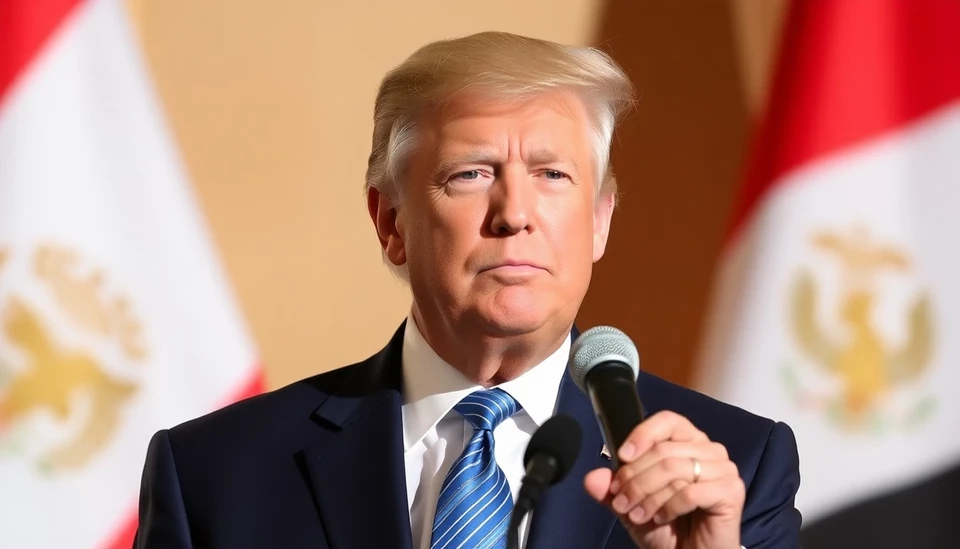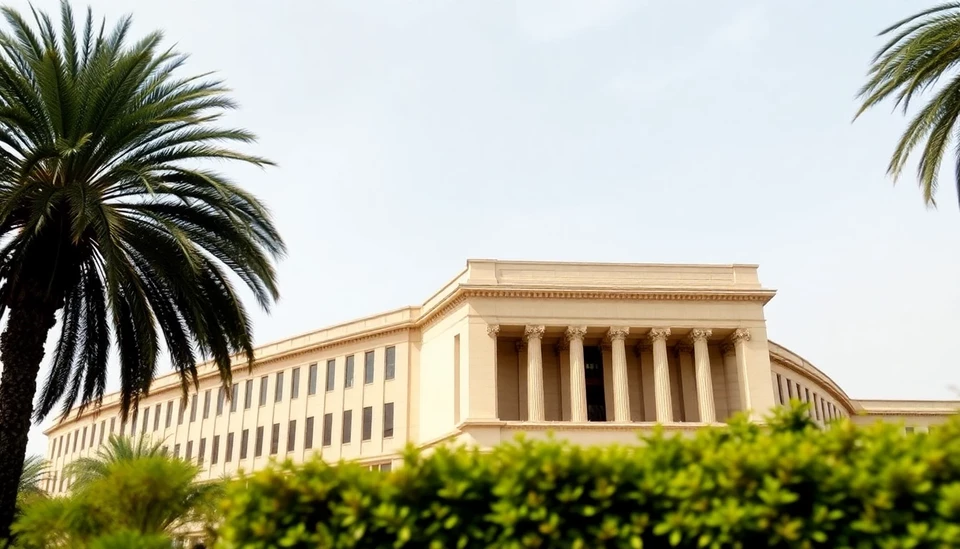
In a decisive move reflecting the unstable geopolitical landscape, Egypt's central bank has opted to hold the benchmark interest rate steady, amidst growing concerns triggered by former President Donald Trump’s recent Gaza plan. This decision comes as the nation grapples with the economic waves generated by escalating conflicts in the region, particularly following the announcement that has rattled international relations.
The Central Bank of Egypt (CBE) convened to evaluate its monetary policy against the backdrop of heightened tensions affecting the Middle East. The series of developments linked to Trump’s initiative have sent shockwaves through the economies of nearby nations, leading to increased inflationary pressures and a cautious financial environment. Analysts had speculated that a rate hike might be necessary to counter these economic uncertainties and stabilize local currency values.
However, in a move that surprised some market observers, the CBE opted to keep the rates unchanged at 19.25%. By doing so, it signaled a commitment to maintaining economic stability while trying to bolster investment and consumer confidence amid these external shocks. This decision aims to strike a balance between fostering growth and managing inflation, which is a common challenge in monitored economies during times of geopolitical stress.
Economists had anticipated a potential increase due to inflationary trends that could exacerbate Egypt's already challenging economic situation. Recent reports highlighted that Egypt is facing a cost-of-living crisis, with soaring prices impacting staple goods. The central bank’s decision reflects an understanding that aggressive rate hikes could further stifle economic growth, particularly for small and medium-sized enterprises that drive much of Egypt's job creation.
In light of Trump’s plans, which many experts argue could lead to a systemic unrest in the region, the CBE is also closely monitoring external economic indicators and adjusting its policies accordingly. This vigilance is crucial as the situation develops, given that tensions in the Middle East often have far-reaching implications for global markets.
Market analysts suggest that the Central Bank's policy will have to remain flexible as it navigates the intricate landscape created by Trump’s proposals and the subsequent reactions from various stakeholders in the region. Economic recovery for Egypt hinges not only on domestic policies but also on the interplay of complex international relations, especially amid such significant diplomatic shifts.
As alarms are raised about the potential fallout of these developments, stakeholders across the board—from investors to everyday consumers—await further clarifications from the government and the CBE on their long-term economic strategies. Moving ahead, Egypt’s ability to maintain economic stability will be pivotal not just for its own growth, but also for the broader Middle Eastern region as it confronts these imminent challenges.
#Egypt #CentralBank #InterestRates #TrumpGazaPlan #EconomicStability #MiddleEastTensions
Author: Daniel Foster




